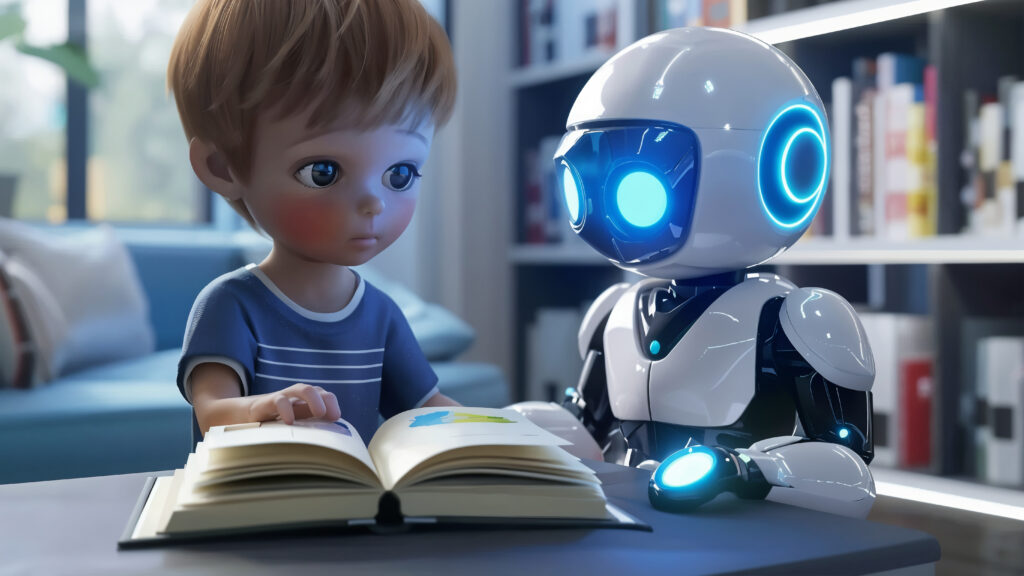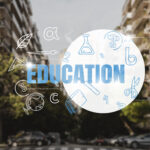Who are the good teachers? Have you ever wonders?

Introduction For any education system, teacher quality is the most important factor in school to achieve education quality . Teacher reforms with the aim to improve teacher quality have been the focus of governments around the world. Although there is general agreement on the importance of teacher quality, teachers, researchers, policy makers, practitioners, and the public have been unable to reach a consensus about what constitutes teacher quality. Quality is a value-laden term and is open to different interpretations, which leads to questions such as who is defining it based on what perspective and to what purpose. Teaching is a complex, dynamic, and context-specific function which makes it further difficult to reach an agreement on the definition. The investigation of such complex phenomenon is never easy. The way teacher quality is defined by an education system will have implications for educational policies and practices, especially related to teachers, such as selection, development, evaluation, and compensation . The review attempts to bring together different streams of literature in one place. The literature on teacher quality can be divided based on different characteristics of teachers, teacher practices and their results. However, successful education systems around the world tend to focus on all aspects. I divided the literature of teacher quality into five categories: a) personal characteristics of a teacher b) teacher qualifications and experience c) Teaching quality d) students learning outcomes and e) broader outcomes. Personal Characteristics The first body of research focuses on identifying certain personality and psychological traits that may distinguish a good teacher from a not-so-good teacher (Thompson, 2016). The characteristics or attributes of a quality teacher has been a topic of research for a long time, such as Plato examining the unusual and highly effective teaching method of Socrates (Watson et al., 2010). Since the 1920’s many perspectives have emerged on the characteristics of a quality teacher. Each of these perspectives falls under one of two main categories: teacher personality and teacher ability (Beishuizen et al., 2001). Some of these characteristics such as personality, beliefs, attitudes, and verbal ability may vary over time for a given teacher (Strong, 2011). Researchers have explored the characteristics of a quality teacher in the perception of students, teachers, parents, administrators, and education professors (Watson et al., 2010). For this section, I focused only on the studies that discuss teacher personal characteristics based on the opinions of students (Beishuizen et al., 2001; Hollis, 1935; Kutnick & Jules, 1993; Szűcs Ida, 2017; Taylor, 1967; Walker, 2008; Witty, 1947), and teachers (Rushton et al., 2007; Watson et al., 2010). In the 1930s, German researchers interviewed 10,000 students to explore the characteristics of a good teacher. Good teachers for most of them were joyful, patient, friendly, objective, understanding, and fair in student assessment (Szűcs Ida, 2017). In the context of the UK, Hollis (1935) asked 8,043 students of different ages to rank seven teacher personality traits. The quality of ‘explaining difficulties patiently’ was top on the chart. ‘Being friendly and sympathetic’ was ranked second. The third was ‘just and fair’ with ‘humor’ ranked fourth. The fifth characteristic was ‘allowing [students] to ask plenty of questions,’ whereas ‘having wide interests’ was sixth and ‘discipline’ was seventh most important. In an attempt to answer the question of ‘What are the outstanding characteristics of a good teacher? Paul Witty (1947) reviewed the letters from 12,000 students in the USA on the assumption that ‘the statements of large numbers of pupils will indicate factors of real significance in successful teaching’ (p. 662). The author found twelve characteristics that appeared the most in the letters i.e., 1) cooperative, democratic attitude 2) kindliness and consideration for the individual 3) patience 4) wide interests 5) personal appearance and pleasing manner 6) Fairness and impartiality 7) Sense of humor 8) Good disposition and consistent behavior 9) Interest in pupils’ problems 10) Flexibility 11) Use of recognition and praise 12) Unusual proficiency in teaching a particular subject. The comparatively latest similar study is a longitudinal study by Robert J. Walker (2008), who collected students’ responses included in essays from different pre-service undergraduate students in the USA over a period of 15 years. The author asked the students to write an essay on the most effective teacher (i.e., a teacher who had been most successful in helping them to learn) from their school lives. Students read their essays in the class and discussed the characteristics (teacher personal qualities) of the most effective teacher in their opinion. The author identified twelve most common personal and professional characteristics that include: prepared, positive attitude, high expectation, creativity, fairness, approachability, sense of belonging, compassion, sense of humor, respect for students, forgiving, and admit mistakes. Notably, students emphasized the personal qualities of their memorable teacher rather than academic qualifications although the question they were asked to address was focused on effectiveness in helping them. ‘Students seldom mentioned where teachers attended school, what degrees they held, or whether they had been named a “Teacher of the Year.” Instead, students focused on these teachers’ nurturing and caring qualities.’ (Walker, 2008, p. 64). The above-reviewed literature on the personal traits of a quality teacher based on the student’s perceptions is diverse in terms of context and timeline. However, many of the personal traits such as friendliness, sense of humor, positive attitude, fairness, respect, and patience are common. The strand of research based on the perceptions of teachers regarding a quality teacher attribute is far smaller than the literature (Watson et al., 2010). The research into teacher personality traits from teachers’ perspectives also generates a long list of characteristics, and like the research based on students, there are many traits such as fairness, caring, enthusiasm and like or love to children that are common in the literature (Strong, 2011; Stronge, 2007, 2018). Watson and others (2010) conducted 66 focus group sessions with middle school teachers in the USA over a period of three years to explore the teacher’s perspective of the effective teacher with each session comprised of 8 to 12 teachers with a
The Role of Artificial Intelligence In Education and Implications For Teachers

Introduction The field of Artificial Intelligence in Education (AIED) has been around for decades. However, with the passage of time, it has gained more clarity as well as potential. AIED is high on research, policy, and political agenda around the world. The focus of the field remained, mainly, on the creation of systems and tools that can be as effective as one on one human tutoring or helping humans in tutoring on domain level knowledge. However, the focus is changing due to many factors. The use of AI, robotics, data science, and other related technologies would not only change the nature of many professions including education but also will change the types of skills valued in the market, generally referred to as 21st-century skills. The general learning skills and competencies such as critical thinking, metacognition, problem-solving, flexibility, and collaboration will be more important than technical and subject knowledge. New education theories also advocate for more personalization and agency in educational experiences. These trends show that not only AIED but education will go under a transformation in near future. The AIED will change to respond to the changing nature of education and education will also change due to the developments in AIED.This paper is an attempt to provide a brief literature review of AIED with a special focus on its implications for teachers. The research questions to guide this study are: What role AI is expected to play in education and why? and what implications it will have on the role of teachers? The first section will discuss the role of AI in education in general and with respect to 21st-century skills. The next section will narrow down the discussion on the implications of AI on teachers. This review is based on the searches on the UMD library general search portal and DB Finder (EBSCOhost) under the education category, and Google Scholar. In addition to this general search, I also consulted the articles from the 19th and 20th AIED international conferences. I started with a general search of articles/books with keywords, “Artificial Intelligence in Education”, “Artificial Intelligence and Future of Education”, and Artificial Intelligence and Future of Teachers. I mainly focused on the latest articles in 2015 and onwards. I also narrow down my focus only to developed countries’ contexts. After an initial search of articles and books, I started reading the most relevant articles and used snowball techniques to find new articles (not limited to earlier stated timelines) from the above-cited sources. I included a few articles related to Robotics and 21st Century Skills in my search as I advanced on my topic.A Case for AI in Education and 21st Century Skills Two main reasons for the role of AI in education cited in most of the literature reviewed in the study are changing need of the market (Catalline, 1999; Hanna, 1998; McArthur et al., 2005; Lukin, 2018; Toumi, 2018; Selwyn, 2019) and advanced educational learning theories (Rolls & Wylie, 2016; Lukin, 2018; Robert-Mohoney et al., 2016; Selwyn, 2019). The availability of cheap processing power, big data availability, data storage capacity, and availability of fast internet have resulted in remarkable breakthroughs in the field of machine learning and artificial neural networks. Driverless cars, image analysis, real-time language processing, and translation, fraud detection, autonomous vehicles, automated customer service, synthetic art, process control, service robots, and many other applications are heavily relying on these two fields. Although the use of these applications is currently at a limited scale, these trends are an indication of a profound impact on the labor market and the competency requirements (Toumi, 2018). Given the value of the economy to a country, education systems tend to adapt to the current as well as futuristic needs of the market. In response to the AI age, some education functions will become obsolete and others will gain more prominence. The literature on 21st-century skills included in this review points out that there are many versions of these skills with some commonality as well as differences. The World Economic Forum in its 2015 report called New visions of Education: Unlocking the Potential of Technology identified the 16 most critical 21st-century skills required by future economies. The report divided these skills into three categories:Foundational literacies that include conventional literacy, numeracy, ICT literacy, cultural and civic literacy, financial literacy, and scientific literacy.Character qualities such as curiosity, persistence, adaptability, leadership, initiative, and cultural and social awareness.Competencies comprise critical thinking, creativity, problem solving, and communication, and collaboration.By contrast, Trilling and Fadel (2009) suggested a slightly different skill set again divided into three categories:Learning and innovation skills: learning to learn and innovate, critical thinking and problem solving, creativity and innovation, communication, and collaboration.Career and life skills: flexibility and adaptability, productivity and accountability, initiative and self-direction, social and cultural interaction, and leadership and responsibility.Digital literacy skills: information literacy, media literacy, and ICT literacy.These two examples provide a short overview of the debate concerning the skills required for the market in the future. Noah (2018) noted that current education systems are not designed to equip the students with most of these skills. ‘Numerous innovations in the education technology space are beginning to show potential in helping address skills gaps. These technologies have the potential to lower the cost and improve the quality of education’ (World Economic Forum, 2015, p-1).The second type of impetus of AI in education comes from the new learning theories advocates for more student-centered, personalized educational experience, and agency (Collins & Halversion, 2010). The logic suggests that personalized technology represents a state-of-the-art alternative to traditional models of schooling, pedagogy, and organization that are irrelevant to the future digital age (Robert-Mohoney et al., 2016). Different components of artificial intelligence such as data mining, learning analytics, algorithm computations, and adaptive learning systems all have potential roles in this new emerging version of education. Regardless of the reason, the majority of the literature in the review agreed that AI will have a significant role in education. The role can be too broad to be covered in this paper.




